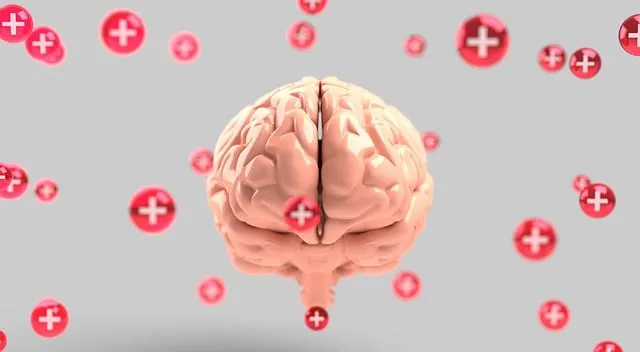The Denver Kaiser Permanente mental health appointment centers face challenges in diagnosing mental illness due to complex symptoms and personal factors. To improve accuracy, they focus on increasing awareness, destigmatizing mental health, and implementing advanced technologies and evidence-based practices. The innovative model integrates digital tools, collaborative care, and holistic approaches like positive thinking and emotional intelligence for better patient outcomes. Through comprehensive training in advanced assessment techniques, cognitive behavioral therapy (CBT), and crisis intervention, they ensure precise diagnoses tailored to individual needs, fostering open communication and empowerment for effective healing.
Mental illness diagnosis accuracy is a critical aspect of healthcare, yet it remains a complex challenge. In this article, we explore various efforts aimed at improving diagnostic precision, from understanding the intricacies of mental health conditions to implementing innovative models like the Denver Kaiser Permanente approach. We delve into advancements in assessment tools, the role of education for professionals, and patient-centered care strategies that empower individuals in their diagnosis journey, with a focus on the transformative model of Denver Kaiser Permanente mental health appointment centers.
- Understanding the Challenges: Uncovering the Complexities of Mental Illness Diagnosis
- The Denver Kaiser Permanente Model: A Revolutionary Approach to Mental Health Care
- Enhancing Diagnostic Tools and Techniques: Advancements in Assessment Practices
- Training and Education: Equipping Professionals for Accurate Diagnoses
- Patient-Centered Care: Empowering Individuals in the Diagnosis Process
Understanding the Challenges: Uncovering the Complexities of Mental Illness Diagnosis

Mental illness diagnosis is a complex process fraught with challenges due to the multifaceted nature of psychological disorders. At Denver Kaiser Permanente mental health appointment centers, professionals encounter a vast array of complexities that demand nuanced approaches. Each individual presents unique symptoms, personal histories, and cultural backgrounds, making accurate diagnosis an intricate task. The diverse range of mental health conditions, from depression and anxiety to more severe cases like schizophrenia or bipolar disorder, further complicates the process.
Efforts to improve diagnosis accuracy focus on enhancing awareness and understanding. Building resilience and emotional healing processes through therapeutic interventions are key strategies. Additionally, public awareness campaigns development plays a pivotal role in destigmatizing mental illness, encouraging early intervention, and supporting individuals seeking help. These initiatives aim to bridge the gap between symptom recognition and accurate diagnosis, ultimately ensuring better patient outcomes.
The Denver Kaiser Permanente Model: A Revolutionary Approach to Mental Health Care

The Denver Kaiser Permanente Model represents a groundbreaking approach to mental health care that has garnered significant attention in the field. This innovative system combines advanced technology with a comprehensive, patient-centered care strategy. By integrating digital tools and promoting a collaborative environment, the model aims to enhance the accuracy of mental illness diagnoses. Through regular mental health appointment centers, healthcare professionals can now access detailed patient histories, real-time data analytics, and evidence-based treatment options, leading to more precise assessments.
This approach not only improves diagnosis accuracy but also fosters better patient outcomes through tailored interventions. The Denver Kaiser Permanente Model underscores the importance of a holistic view of mental health, considering factors like Positive Thinking and Emotional Intelligence. This comprehensive strategy ensures that patients receive personalized care that addresses their unique needs, aligning with current Mental Health Policy Analysis and Advocacy efforts to revolutionize mental healthcare delivery.
Enhancing Diagnostic Tools and Techniques: Advancements in Assessment Practices

Mental health professionals at Denver Kaiser Permanente mental health appointment center are continually updating their diagnostic tools and techniques to improve accuracy. This includes integrating innovative assessment practices that leverage advancements in neuroscience, psychology, and technology. For instance, they employ sophisticated psychological testing and advanced brain imaging to gain deeper insights into an individual’s mental state, enhancing the reliability of diagnoses.
Additionally, the center emphasizes evidence-based approaches such as Crisis Intervention Guidance and Self-Awareness Exercises to support patients in managing symptoms and preventing relapses. By combining these interventions with Depression Prevention strategies, Denver Kaiser Permanente aims to provide comprehensive care that not only accurately identifies but also effectively addresses mental health concerns.
Training and Education: Equipping Professionals for Accurate Diagnoses

At Denver Kaiser Permanente mental health appointment center, efforts to enhance diagnosis accuracy are centered around comprehensive training and education for professionals. This involves regular workshops and seminars that delve into advanced assessment techniques, the latest research findings, and innovative approaches like cognitive behavioral therapy (CBT). By equipping mental health practitioners with cutting-edge knowledge, these programs aim to improve diagnostic precision, ensuring patients receive tailored care that addresses their specific needs.
The Mental Health Education Programs Design focuses on emotional regulation and stress management as critical components of accurate diagnoses. Through interactive sessions and practical exercises, professionals learn to identify subtle signs and symptoms, often obscured by a patient’s emotional state or coping mechanisms. This holistic approach not only improves diagnosis but also fosters more effective treatment plans, enhancing the overall well-being of individuals seeking mental health services at Kaiser Permanente Denver.
Patient-Centered Care: Empowering Individuals in the Diagnosis Process

At Denver Kaiser Permanente mental health appointment centers, patient-centered care is transforming the diagnosis process by empowering individuals to take an active role in their emotional healing processes. This approach recognizes that each person’s experience with mental illness is unique and requires a tailored understanding. By fostering open communication and encouraging patients to share their perspectives, healthcare providers gain valuable insights into the nuances of an individual’s condition.
Patient-centered care not only improves diagnosis accuracy but also strengthens the therapeutic relationship. It enables individuals to develop coping skills and cultivate positive thinking, which are essential elements in navigating mental health challenges. This holistic approach ensures that patients feel heard, respected, and empowered, ultimately leading to more effective treatment plans tailored to their specific needs.
Mental illness diagnosis accuracy has seen significant advancements through innovative approaches like the Denver Kaiser Permanente model, which emphasizes patient-centered care. By combining advanced diagnostic tools, comprehensive training, and collaborative care models, healthcare professionals are better equipped to navigate the complexities of mental health assessment. The Denver Kaiser Permanente mental health appointment center serves as a testament to how integrating these strategies can revolutionize mental health care, ultimately improving outcomes for individuals seeking support.






